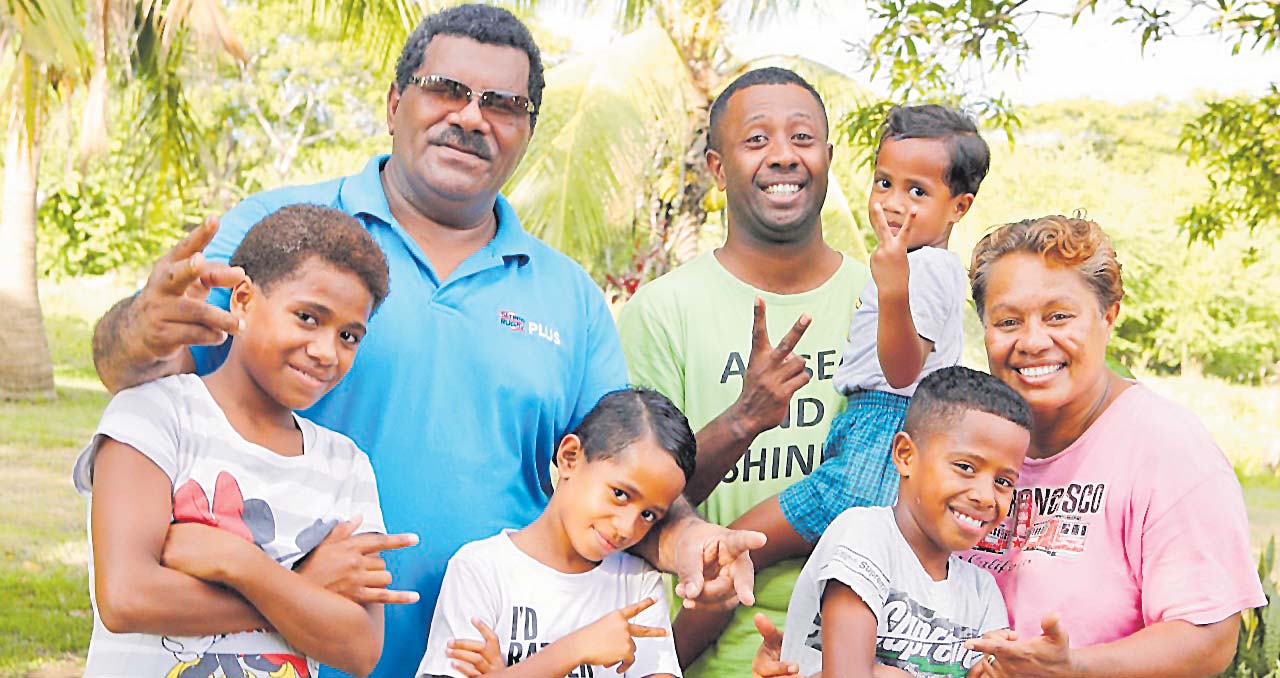Once a promising rugby league player with the Nabua Broncos, Josaia Silameke spent a decade running from the law, sleeping under houses, in and out of prison and surviving on the streets.
The saying ‘Jesus saves’ is sometimes thrown around loosely, but in this instance Silameke’s conversion to a life with the church changed everything and brought stability, happiness and even integrity to his family.
Now a pastor and a qualified match commissioner with Ba Rugby, Silameke tells the story of how miracles do happen.
What was your childhood like?
My real name is Josaia Silanameke.
My father is from Vione in Gau but I was born and brought up in Navokacoa on Taveuni, the landing that goes to Qamea.
My mother is from Kocoma in Qamea.
Marika Vunibaka is my younger brother, but we didn’t grow up together.
I lived on Taveuni until I was six years old when we moved to Samabula in Suva.
My first criminal case was in Class 8.
I stole some money from a house, got caught.
At that time, I was a wild child, I wanted to be a hero.
I had street kids as friends.
I was like a pet in our house as I was the only boy, so if I did anything wrong, I’d be excused.
I first went to prison when I was 18 for a burglary case in Pacific Harbour.
They (the court) gave me one year and six months.
Did prison change you?
No.
Prison was a learning experience for me, to get tougher, defend myself and be smarter.
It came to a time when I could look at a house and I’d know how to get in, from the roof, from the side, or even from underneath the floor.
And when you go to prison, you have to have a nickname.
I got mine because I was always on drugs.
My friends still call me ‘High Jo’.
How long did you stay out?
Just a few months.
It wasn’t just a way of making easy money, we were branded as bad guys.
Once you go into prison, you’re counted as an outcast and nobody looks at you; no one’s going to give you a job, so it becomes a continuous cycle of crime.
I finally left home when the police started coming to our house.
After the second time in prison, I learned to dress as a preacher or a meter reader – suit, necktie, carrying a Bible.
Then nobody suspected me, and I never got caught again.
What about the rugby?
In 1993, my friend Varea Volaikisuva invited me to join the Nabua Broncos when rugby league was starting up.
Our coach was former Flying Fijian halfback Pauliasi Tabulutu.
I played with Alifereti Dere, his brother Jere Lalakai, and the Fiji reps Filipe Tauyaga and Ilaitia Takaladau.
All this time I was wanted by the police, I had so many cases.
If I was playing and saw a policeman on the sideline, I’d just run off the field, give the jersey to someone else and I’d have a friend waiting with a taxi.
I lost my right eye playing rugby.
My village team was playing QVSOB.
Someone said they should target me if they want to win, and I got gouged, so I’ve only had one eye for more than 20 years now.
I went to the Fiji Bati trials at Nausori and got picked but I had to run away.
When the old Fiji Sun called me for an interview, I told my friend to give them whatever name he wants.
The next day, I saw my picture in the paper with the name Jo Tikoisuva, so I started using that name for a long time.
How long were you on the run?
About 10 years.
I went to Moala Island in Lau, to Naviti in the Yasawas, whole of Vanua Levu, I kept on moving … until I met my wife Kalara in Savusavu in 1996.
We got married, but she didn’t even know my real name.
How did ‘life on the run’ end?
I am so unbelievably thankful to my mother, Seini Tikoinacakacaka Ledua.
I was always in touch with her, and she knew everything I did.
One day, she said ‘Hey, you’re married now, and you cannot keep living like this.’
She went to the police and they got all my cases together and told me to plead guilty.
I was given a suspended sentence.
Regrettably, I then became like a drug lord.
My supplier was in Navosa and I looked after the whole of Taveuni.
I paid other people to handle all the drugs, I just organised it.
I was making thousands of dollars a day, but then drinking a thousand dollars in a night.
The money was just going down the drain, and I was lucky that I wasn’t killed.
How did you stop?
This continued until 2009, and that’s when I met Jesus Christ.
It was through (BRU secretary) Pastor Gaby Kautoga who was doing a crusade.
Today, I understand the rugby players who are selling drugs, because I was one of them.
When I see people sleeping on the streets, I understand because I was one of them too.
I know I can help these people.
I even went to see my old drugs supplier in Navosa, spent time with him and prayed with him.
Now he’s a pastor too.
Our lives have changed.
I was once a leader of bad things, a really bad influence on others.
I honestly feel terrible about all those years.
But it has led me to this point in my life.
To be here in Togalevu, a village of only nine houses.
I feel so lucky, maybe this is our retiring place.
When I look at my life now, I feel it was all part of God’s plan to do his work.



